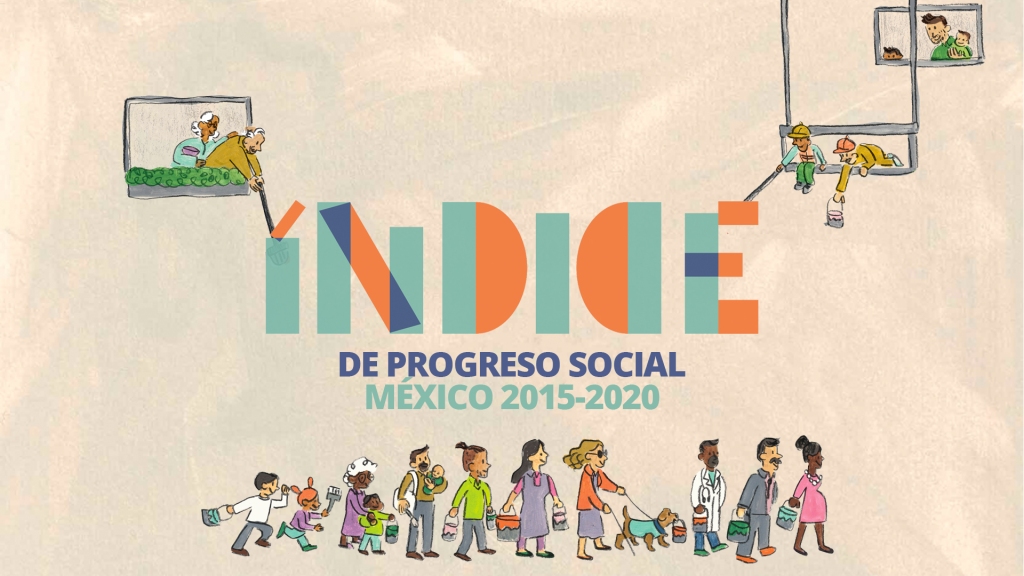The Social Progress Index of Mexico: How is the country performing?
In the 2021 Social Progress Index, Mexico ranked 68th out of 168 countries. Mexico performs worse than the world average in personal safety and access to advanced education. Moreover, there is an institutional recession in personal rights compared to 2011 due to less access to justice. The country ranks 122 out of 168 countries in the press censorship indicator, 126 in political violence, and 160 in the homicide rate. Additionally, Mexico also has a lot of room for improvement on its lowest components: personal safety, inclusiveness, access to advanced education, personal freedom and choice, and health and wellness.

We wanted to understand more about how Mexico is performing at a local level, therefore in partnership with México ¿Cómo Vamos? and INCAE Business School, we launched the Social Progress Index of Mexico. The report shows data for the 32 Mexican states and analyzes the three dimensions we use as the Social Progress Imperative’s framework.
We can see how the country decreased in Personal Rights and Personal Safety and made a major improvement in Access to Basic Knowledge.
The Social Progress Index of Mexico, comprising 54 indicators, allows for a much more detailed inquiry to understand what is causing specific components to stagnate, decline, or progress. One of the core findings is that across the country progress is not moving fast enough.
For the first time, we were able to analyze data for Mexico from 2015-2020, enabling us to compare life before and during the Covid-19 pandemic. This crucial data allows us to better understand the social implications of the pandemic on Mexico’s progress.
GDP or Social Progress?
We strongly believe that it is not about choosing between GDP or social progress, it is about using both measurements to the benefit of our society. By analyzing them individually, we can better understand how we are doing and what areas need more attention.
Only measuring GDP has never been enough because it isn’t the only information necessary for social progress. Sofía Ramírez Aguilar, Executive Director at México ¿Cómo Vamos? affirms that: “Economic growth by itself is not a guarantee of further development if it is not accompanied by the application of fair rules and good state administrations.”
With the fall in GDPpc in 2019, we also see a fall in social progress. Before the pandemic, the Mexican economy was already weakened and underinvested. Moreover, the results show that: “Even with moderate growth, it is possible to improve people’s wellbeing if resources are managed well.”
The graph shows that Mexico underperforms compared to the country’s GDP. (2021 Social Progress Index)
The impacts of COVID-19
During the pandemic, Mexico has been one of the countries that caught international news attention. It is not news that the COVID-19 pandemic in Mexico was one of the worst managed, ranking among the countries with most excess mortality.
Although Mexico City, Mexico’s capital, is one of the top five states on the overall Social Progress Index, it suffered a shocking decrease of 3.19 points mainly because of excess deaths due to the COVID-19 virus. The report states that: “When estimating a linear regression model, we observe that by each percentage point that excess mortality increases, the Social Progress Index score between 2019 and 2020 decreases (-) 4.1 points.”
The dimension most affected by the pandemic was Basic Human Needs (BHN) because, for each point in excess mortality, the score in BHN decreased -7.8 points. This dimension includes access to Nutrition and Basic Medical Care, which are crucial for surviving the crisis. Not only was there insufficient medical care but it also meant an increase in working poverty, which directly impacts Mexican families. In the third trimester of 2020, Mexico registered a historic high of 44.3% of the population in working poverty, which means that families’ income is not enough to buy the basic food basket, the minimum daily food consumption with the most necessary nutritional requirements.
The Reports
We believe in free and open data, so we make our work accessible for everyone. You can download both the global index and the Mexican national index for free.
México ¿Cómo Vamos? has an interactive website where you can learn more in-depth analysis for each one of the 32 Mexican states, enabling you to make comparisons by state or geographical area. You can also find the scorecard for the state you are most interested in at the end of the full report.
To compare Mexico’s social progress to its economic peers or other countries, you can check out our interactive map. Additionally, you can download the 2021 Social Progress Index findings deck and our special Climate Change Report for free.
Discussing the findings of the Mexican SPI:
In the launch event, México ¿Cómo Vamos? invited expert speakers to discuss the index results and what it means to México’s future. You can rewatch the event here. Some of the guest speakers were:
- Sofia Ramirez Aguilar, Executive Director at México, ¿cómo vamos?
- Sarah Hidalgo Borrero, Senior Economist and Policy Officer at the British Embassy Mexico City
- Ilsa Aguilar Bautista, Sociologist and trans activist
- Carlos Brown Solà, expert at México, ¿cómo vamos? and SUR. Instituto del Sur Urbano
- Roberto Velez Grajales, Executive Director at Centro de Estudios Espinosa Yglesias
- Graciela Márquez Colín, member of the governing board at INEGI Informa
- Katia Guzmán Martínez, Data Coordinator at México, ¿cómo vamos?
Sofia Ramirez Aguilar, Executive Director México ¿Cómo Vamos? and Carlos Brown.
“Wealth is not enough. We should transform growth into development and strengthen at a local level by understanding the inequalities. One way to do this is by having a dignified treatment of local institutions where they really approach the people.” – Carlos Brown, expert at México, ¿Cómo Vamos?
